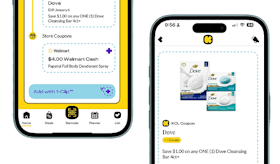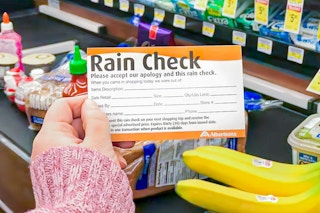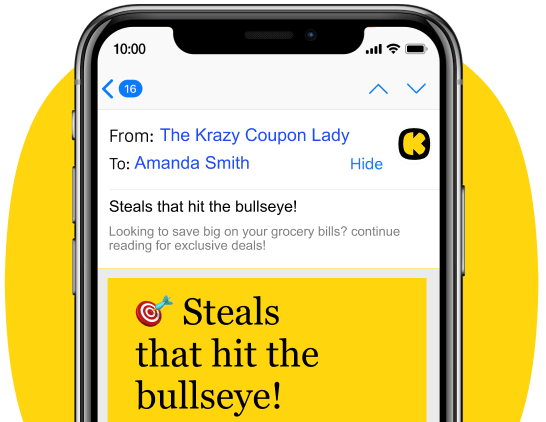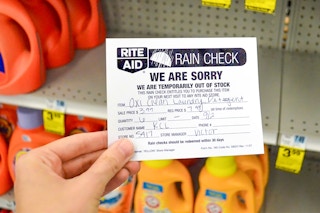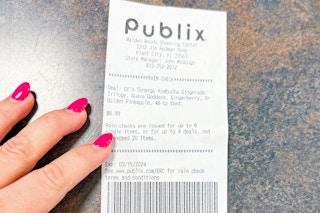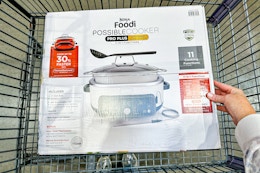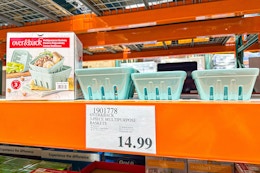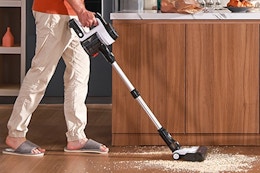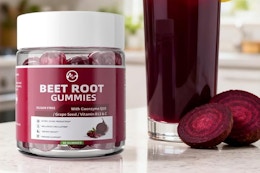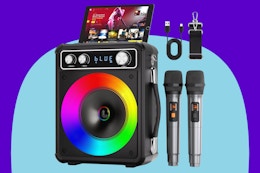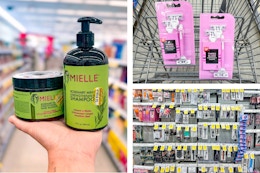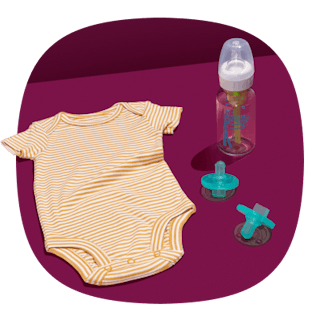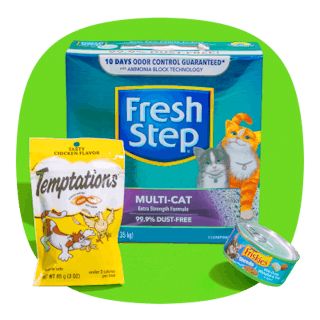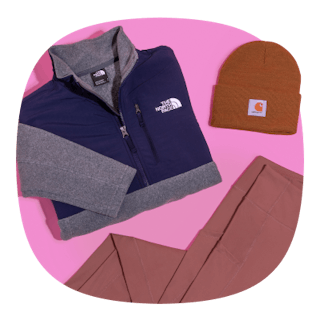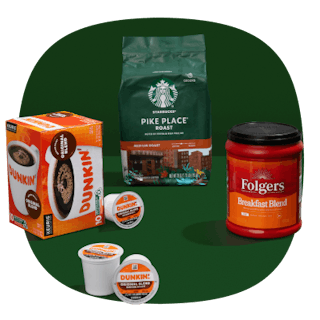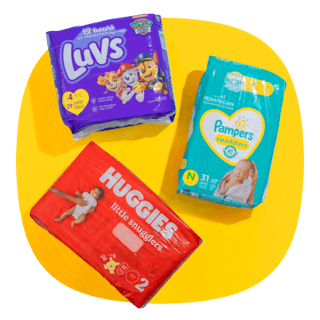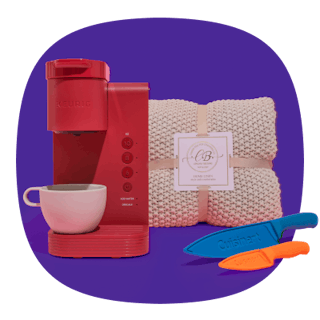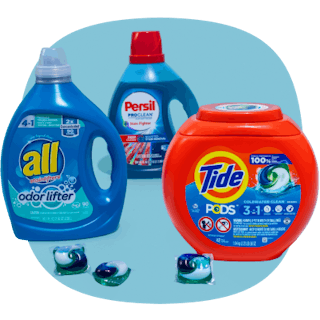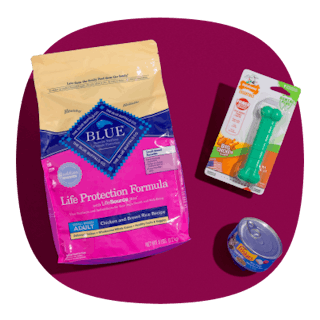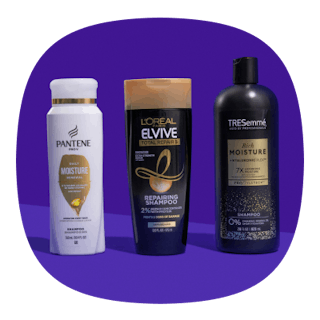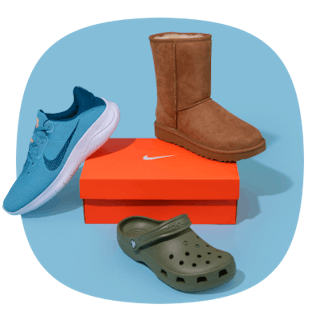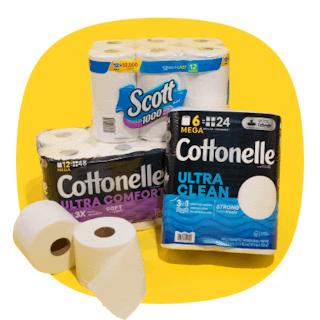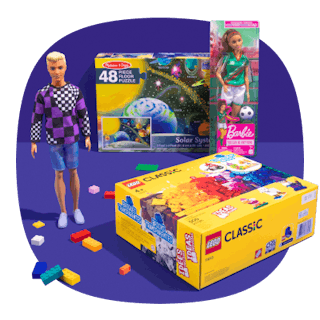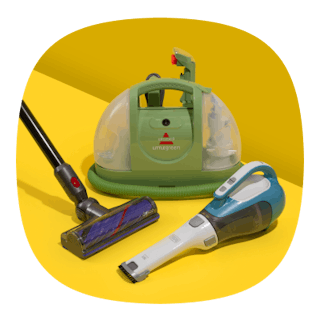Picture this: You've planned your whole shopping trip around an amazing deal on laundry detergent, but when you get to the store it's sold out, with an empty shelf staring back at you.
Don't panic — this is where rain checks come into play. Rain checks allow you to lock in sale prices even when stores run out of stock, ensuring you don't lose out on the savings.
Getting familiar with which stores offer paper rain checks is an essential part of learning how to coupon, and they can come in handy when you're mastering the art of coupon stacking. But just remember, rain checks are a store policy, not a coupon or something you're going to see in coupon fine print.
If you’re not couponing yet, you’re missing FREE deals. Download the KCL app now .
What are rain checks and how do they save you money?
A rain check is basically a store's IOU. It's usually a slip of paper that proves you showed up during a sale, but the item wasn't in stock. With that piece of paper, you can come back later and still get the sale price, even if the promotion's over.
Here's how it works: Let's say your favorite granola bars normally cost $6, but they're on sale for $2 when you buy two boxes. You get to the store and they're completely out of stock. No problem! Ask for a rain check, and when those granola bars are back on the shelves, you can still buy them for $2 per box.
Why They're Called Rain Checks (Fun History Lesson)
Back in the 1800s, baseball stadiums started the whole concept of rain checks. When games got rained out, they'd give ticket holders "rain checks" to come back for free when the weather cleared up.
Smart stores borrowed the idea. Now instead of missing out on deals because of empty shelves, you get a second chance to score those savings.
The Government Rule That Makes Rain Checks Even Better
Here's something most people don't know: The Federal Trade Commission (FTC) actually has your back on rain checks at stores that sell food (including grocery stores). The FTC created something called the Unavailability Rule because grocery stores were pulling sneaky moves — advertising great deals but not stocking enough products.
Now stores that sell food have to do one of these things when they run out of a product:
-
Give you a rain check.
-
Offer a similar product at the same price.
-
Give you something else that's worth the same value.
-
Actually stock enough items in the first place.
This rule is why rain checks aren't just a nice gesture; they're often required by law.
How to Score a Rain Check Like a Pro
Step 1: Double-check that the item is really out of stock.
Don't always trust the empty shelf. Ask an employee to check the back room. Sometimes they've got extras hiding back there. If they don't, make a mental note (or better yet, write it down) that you'll need a rain check.
KCL TIP: You usually can't get rain checks on clearance items, limited-time offers, or "while supplies last" deals. When in doubt, check the store's website for their rain check policy.
Step 2: Tell your cashier right away.
As soon as you start checking out, mention you need a rain check. Don't wait until the end of the transaction. Your cashier will either write one up on the spot or send you to customer service.
Step 3: Check the expiration date on the rain check.
Each store policy is different. Some rain checks last 30 days, while others give you 90 days or more. Put that expiration date in your phone's calendar right away. Trust me on this — it's so easy to forget and let them expire.
Step 4: Ask for another rain check later if the item is still out of stock.
If your rain check's about to expire and the item's still not back in stock, ask for another rain check. Keep in mind that not all stores allow an extension, but it never hurts to ask.
Step 5: Know the difference between sales and promotions.
Here's where it gets tricky: Rain checks usually cover sale prices, not special promotions like BOGO free deals. If you want to use your rain check during a BOGO promotion, double-check that the rain check will be valid while the promotion is still running.
The Best Rain Check Policies (These Stores Really Get It)
Albertsons/Safeway
Albertsons and Safeway will write rain checks not just for sale prices, but also for items with store coupons. For example, if something costs $12 but you had a $3 store coupon, they'll write your rain check for $9.
Rain checks last 30 days and work at any Albertsons or Safeway location. Just don't expect them for clearance items or anything marked "limited" or "while supplies last," per the official Albertsons policy.
They also won't issue rain checks for beer, wine, spirits, tobacco products, fuel, or any fluid items in the refrigerated dairy section.
CVS
CVS has hands-down the best rain check policy anywhere. Not only can you get a rain check for any out-of-stock item, but they write them in a way that can actually save you more money than if the item was in stock.
Here's the magic: If you have a CVS store coupon, they'll write the rain check for the sale price minus your coupon. So if body wash is on sale for $5 and you have a $3 CVS coupon, your rain check gets written for $2. And if the item is part of an ExtraBucks promotion, you'll still get ExtraBucks after the fact.
Additionally, their rain checks never expire. It says so right in the official CVS policy. Save them for when you have manufacturer coupons or digital rebates, and you could end up getting products completely free.
Publix
Publix offers rain checks for items advertised in their weekly ads, on TV, radio, or on their website or app, per their official Publix policy. Each household can get one rain check per day for promoted items, and you've got 30 days to use it at any Publix that carries the product.
They'll issue rain checks for up to eight single items or up to four deals (not exceeding 20 total items). Keep in mind that you can't ask for a Publix rain check on alcohol.
Decent Rain Check Policies (Good, but Not Great)
Best Buy
Per the Best Buy policy, they'll offer rain checks for in-store items, but not for online items.
Hobby Lobby
Hobby Lobby's policy offers in-store rain checks when specific items are on sale. However, if a whole set of merchandise is on sale (like "Entire Stock of Unfinished Craft Wood"), rain checks aren't available. If you have questions about a particular item, you can ask guest services, and they'll help you out.
Kroger
Kroger doesn't have an official company-wide rain check policy, which means the government rule kicks in. As long as your sale ad doesn't say "limited quantities" or "select locations only," they legally have to give you a rain check if they're completely out of stock.
Just keep in mind that rain checks aren't issued (or accepted) for pickup or delivery orders, as stated in the Kroger fine print.
Target
Target has so many exclusions that getting a rain check is pretty tough. According to the official Target policy, they don't do rain checks for clearance, price cuts, temporary price cuts, items marked "no rain checks," or online purchases. But when you can get one, it's good for 30 - 45 days at any Target (the time period varies by state).
KCL TIP: Do you know about Target price matching? It requires that Target has the items in stock, so you can't try to play the system and get a rain check for a competitor's price.
Walgreens
Walgreens issues rain checks for out-of-stock sale items in-store only, per their policy, and the rain checks are good for 60 days. Sometimes they'll offer you a similar product of the same brand at the advertised sale price. But don't expect to get Walgreens Register Rewards with your rain check.
If the item is producing Walgreens points, it's worth asking the cashier to write the rain check for the after-points price, but your mileage will vary based on your store.
Stores That Don't Do Rain Checks
While these big retailers don't offer rain checks, if they sell food, they still have to follow that government rule I mentioned above (the FTC's Unavailability Rule). Stores listed below may offer substitute products or other compensation instead, if you ask:
-
Costco
-
Dollar General
-
Dollar Tree
-
Home Depot
-
Kohl's
-
Lowe's
-
Macy's
-
Michaels
-
Sam's Club
-
Walmart
Save (or pin) this cheat sheet for reference:
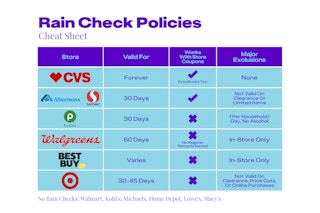
Your Rain Check Questions Answered
When should I actually use my rain check?
Use it as soon as the item's back in stock, but definitely before it expires. Most last 30 - 90 days, but check your specific rain check.
What if I'm nervous about asking for one?
Don't be! Just tell your cashier, "Hey, could I get a rain check for this since it's out of stock?" If they can't help you, they'll point you toward customer service.
Do all rain checks expire?
Almost all of them do, except CVS. Mark that expiration date in your calendar ASAP so you don't forget about it.
Related Reading:
Download the KCL app to add and redeem coupons in store
